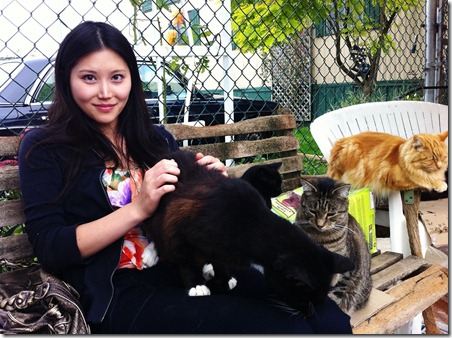Women on the Front-Line
Ending Violence Workers at Battered Women’s Support Services
Annie Zhang
“I believe that BWSS’ work plays an integral role in tearing down some of the barriers women face in the social and legal system” Annie Zhang, Legal Advocate
While completing my law degree at UBC, I was fortunate enough to have the opportunity to spend a summer working as a student legal advocate at Atira Women’s Resource Society. That experience opened my eyes to the many disadvantages faced by women involved with the legal system. I decided that I would like to use my legal knowledge to support women in navigating the system and help them advocate for their rights.
Women’s inaccessibility to justice is a deeply pervasive and problematic issue. It’s easy for players in the legal system to overlook the intersection of barriers many women face in accessing its services, particularly women who are racialized, living in poverty, immigrants, or otherwise socioeconomically underprivileged. Women who have experienced violence and abuse face yet more barriers when seeking justice from their abusers. The legal system favours the privileged — women are often without the same resources as their partners, and are forced to represent themselves through a complex, user-unfriendly judicial system while their partner has the benefit of legal counsel. In light of this imbalance of power, I think it’s important for women to have access to free, low-barrier legal and emotional supports from organizations like ours, Battered Women’s Support Services, to guide and empower them through this challenging and stressful process.
I believe that BWSS’ work plays an integral role in tearing down some of the barriers women face in the social and legal system. I think it’s important for women struggling through the justice system to have accessible legal information, advocacy, and support, in a safe environment where they can feel validated, non-judged, and heard. Through the variety of programs offered at BWSS, we are able to provide many forms of support to women who need it most, accepting them “where they are at” and empowering them as the expert of their own lives.






good I believe that BWSS’ work plays an integral role in tearing down some of the barriers women face in the social and legal system. I think it’s important for women struggling through the justice system to have accessible legal information, advocacy, and support, in a safe environment where they can feel validated, non-judged, and heard. Through the variety of programs offered at BWSS, we are able to provide many forms of support to women who need it most, accepting them “where they are at” and empowering them as the expert of their own lives.